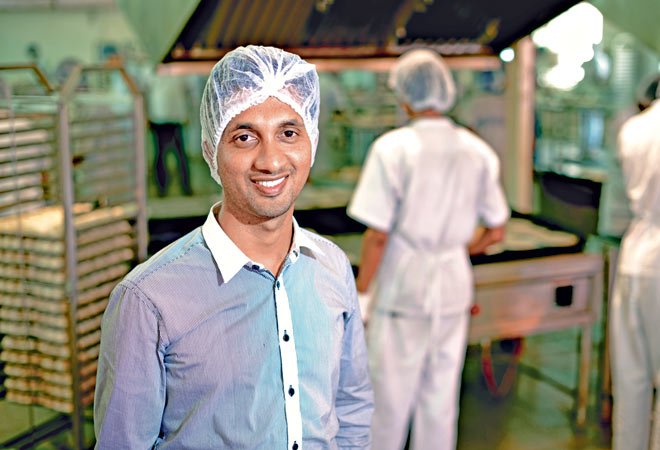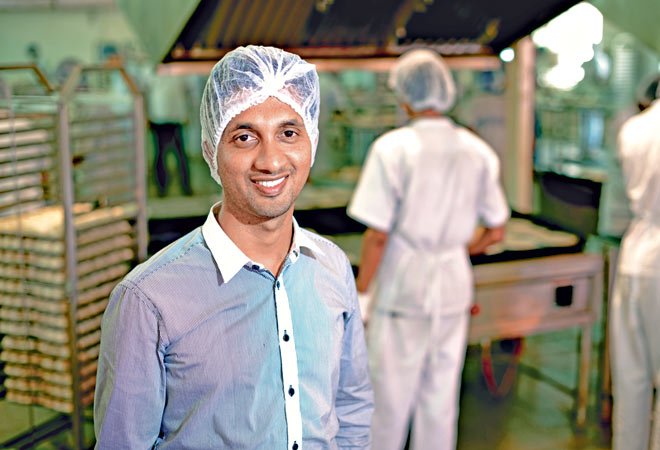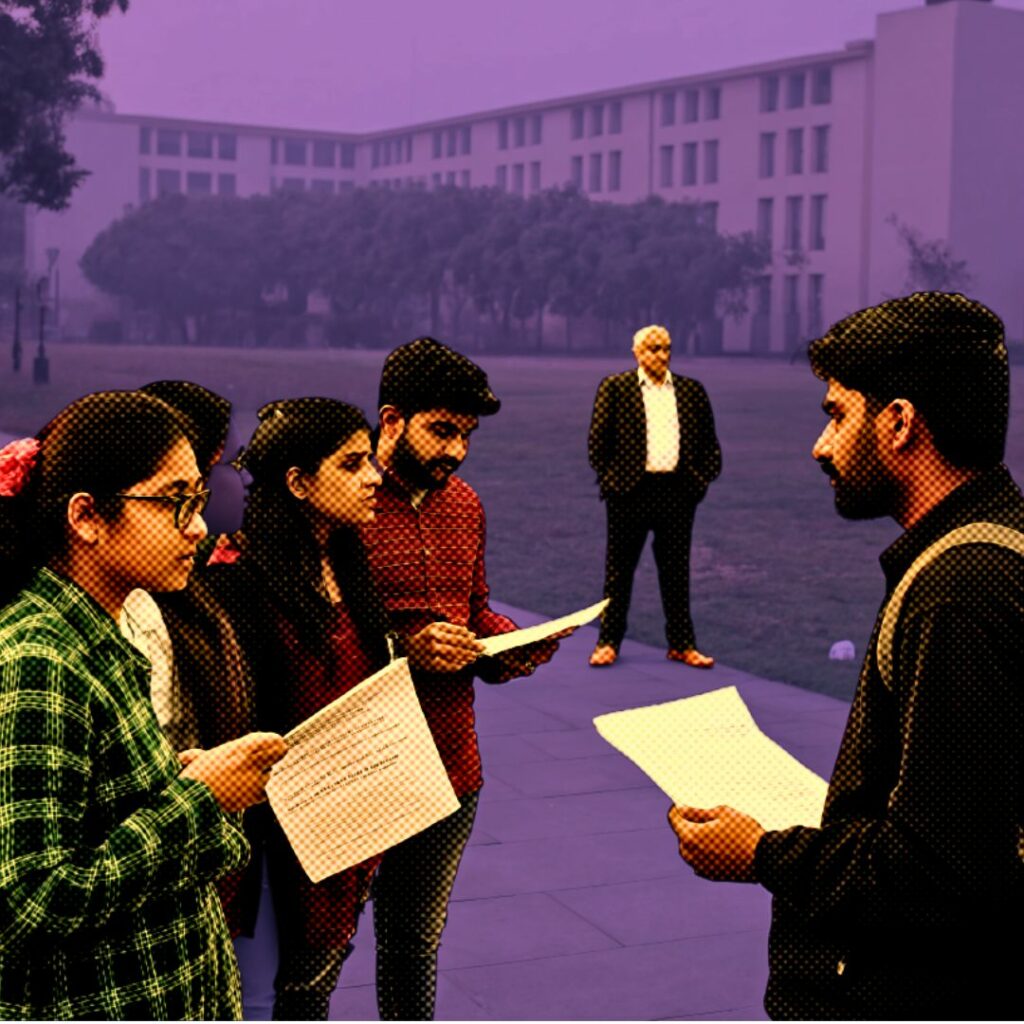Source: rediff | Author : Shobha Warrier | Image Courtesy: intoday rediff
The story is as much as that of a successful entrepreneur as that of a teacher whose sudden jump transformed the life of a boy and made him what he is today.
A man who failed in class 6 but went to join National Institute of Technology, Calicut and later Indian Institute of Management, Bangalore. The man now 42-year-old from Kerela is the son of that mother who never went to school and his father was a coolie.
PC Mustafa’s tale is inspiring. He decided to become an entrepreneur and employ people from rural India. Today, fresh idli and dosa batter made by his company reaches Bangalore, Delhi, Hyderabad, Mangalore and even Dubai.
Childhood in Wayanad
Mustafa grew up in a small village called Chennalode near Kalpatta in Wayanad.
The village was so remote that we had only a primary school. It had no roads or electricity. We had to walk at least four kilometres to go to high school so most of the kids dropped out after primary school.
The village was remote deprived of electricity and had only a primary school which could be accessed only after walking four kilometres so most of kids opted to dropping the school.
Mustafa is the eldest and have three sisters younger to him.
As a young student he was not interested in studies and despite going to school every day, he preferred helping his father, a daily wage worker rather than doing homework.
Lack of supply of electricity ruled out the studies at night and kerosene lamps were only looked up to.
The interest in studies was lost after Mustafa failed in nearly all the subjects except Mathematics in which he was good at.
Teacher jumps in an Captain America:
His father who after seeing his son’s poor results asked Mustafa to join him as a daily wage worker but after the intervention of Mathew, maths teacher, who didn’t like the child’s dropping of school. He spoke to his father who further gave him one chance.
Mathew Sir asked me a question, ‘Do you want to be a coolie or a teacher?’ I looked at him and could see the difference between my father and my teacher. ‘Sir,’ I answered, ‘I want to be a teacher like you.’
It was humiliating for him to sit with the juniors and this humiliation further made his attention sharper.
Seeing him so weak in English and Hindi, Mathew helped him even after the school.
From a failure to a topper:
The intervention of the teacher helped him so much that Mustafa stood first in class 7 and there was no looking after that and he even came first surpassing everyone in class 10.
Maths teacher’s image of a hero had stayed with him so much that he became Mustafa’s role model and he even decided to become a maths teacher following his teacher’s footsteps.
College was the first opportunity to move out of the village. Though the father had no problem in sending him to college, the financial constraint didn’t allow Mustafa to move out.
He got admission at the Farooq College in Kozhikode where his father’s friend, who had suggested Mustafa to study further, arranged for a free meal scheme in the college charity hostel.
The situation was so difficult that he along with 15 other students had to go to different hostels for breakfast, lunch and dinner as they all were on charity.
The experience at hostels was humiliating as other student’s embarrassing gesticulation and comments pierced the heart but Mustafa swallowed every bit of it for the sake of education which could transform his life in the later stage of his life.
He is thankful to the management for taking care of the students with poor financial capacity at their disposal.
Coming from a village, I was very weak in English. It was a big handicap in college where all the lectures were in English. A good friend of mine used to translate everything for my benefit. I also worked extremely hard and felt even more motivated when I scored good marks. A friend helped Mustafa in translating every lecture in English as he was poor in it. He too worked hard in English and scored good marks which worked as a motivating catalyst.
Engineering at REC, Calicut:
I wrote the engineering entrance exam after my college and was ranked No 63 in the state. I got admission at the Regional Engineering College (now the National Institute of Technology). He stood 63 in the state in the entrance examination of engineering. He took admission in the Regional Engineering College, now known as National Institute of Technology.
Just give a look at three factors in his own words which helped him:
I had the potential as I was good in Maths. I was a hard worker. And the third and most important reason was that God was with me.
I was very lucky to have secured such a good rank. I got the opportunity to study what I really liked — computer science. There was no one to guide me in those days except God Almighty.
Unlike other students, I had to be very careful about spending money, but that was okay. During his stay at hostel, he was careful in spending the money. He took student’s loan and had to take care of only tuition fees which came as a big relief for him.
He had no plans to become an entrepreneur. He wanted to become a known engineer and joined Manhattan Associates, an Indian start-up in the US, after his graduation in 1995.
First flight:
After a few days of working at the start-up in Bangalore, he got an offer from Motorola. It was a dream come true for a person who initial life went in a remote village. He was set to Ireland. As a young boy, I stepped out of Wayanad for the first time to study in a college. It was special moment as for the first time he boarded a flight and was going out of country.
The aerial view of Bangalore still lingers in his mind.
Nostalgic:
He looked at Irish and Ireland with awe but he missed his homeland and the food. The place lacked Indian restaurant and he even missed his regular prayers.
After working for three years he got a job at Citi Bank in Dubai. The salary was in lakhs and he cleared his loan. After clearing the loan, he sent a cash amount of 1 lakh to his father through his friend. He was told that his father started crying on seeing such a big amount being sent from his son.
His father paid off his debts and planned Mustafa’s sister wedding. One of his sisters had dropped out after school, but the others went to college. In 2000, Mustafa also got married.
A home for parents:
Mustafa was looked as an inspiration as he built a home for his parents. The villagers who knew his background and past were startled at this transformation.
In 2003, after having lived in Dubai for so long, he decided to return to India. There were three reasons for the decision.
The reasons in his own words:
I wanted to come back and spend time with my parents.
I wanted to study further. Though I had a very good GATE score, I couldn’t study after my engineering due to financial constraints. After working for a few years, I decided to study business administration. The third reason I wanted to give back to society.
There are so many smart youngsters in our villages who are not getting a good break in life. I wanted to give them that opportunity so that they too could come up in life. And the best way to help them, I thought, was by providing them with jobs. In order to do that, I had to be an entrepreneur.
Quitting a well-paid job was the toughest decision which he ever took. It horrified his father and even his wife’s family. Nasser, his cousin, his wife were the two persons who stood beside him.
He came to India with a savings of Rs 15 lakh. He was having no idea of what to do but he wanted to do something.
Idlis and dosas
Instead of studying technology, he decided to do an MBA as he found management more interesting. He took admission at IIM-Bangalore.
He never forgot his business and even during his studies at IIM, he discussed his plans with his cousins.
Shamsuddin, one of Mustafa’s cousins, had seen dosa batter being sold in plastic bags tied with a rubber band in nearby stores and suggested that they should make and supply dosa batter. He decided to invest Rs 25,000 and start a company immediately.
Five cousins — Nasser, Shamsu, Jaffer, Naushad including Mustafa joined hands. The partnership was such that he had 50 per cent share in the company and the other 50 per cent was with the cousins.
They found a small place of around 550 square feet and started with two grinders, a mixer and a sealing machine.
ID is identity, not idli dosa
The venture was named ID Fresh. The initial target was 20 stores in the neighbouring stores. The plan was such that once the target of 100 packets a day in six months was met, they would buy more machines.
Since the brand was new, the shopkeepers were reluctant to keep it so special offer, cash after sales, was offered to them. The cousin was in-charge.
When the customers asked for ID repeatedly, other stores wanted to pile up the stock too but the entrepreneur stuck to the first 20 stores and at the ninth month, they met the target of 100 packets.
Making profits from day one
After paying the rent of Rs 500 and crossing off the expenditure of buying rice, dal, etc, our profit was Rs 400 in the first month. None of them drew salary initially and the best part was that they were making profits from day one.
After reaching the target of 100 packets, he decided to invest Rs 6 lakh and move to a bigger kitchen of 800 sq ft with 2,000 kg capacity, which is 2,000 packets with 15 wet grinders.
Nasser was handling the kitchen alone so five more people were employed who happened to be the relatives.
Joining as the CEO:

In 2007, I got my MBA and officially joined as the CEO in charge of marketing and finance. Till then, I was only remotely participating in the operation along with my cousins. In 2007, after receiving his MBA he joined as the CEO in charge of marketing and finance. The capacity was surged to 3,500 kg a day while the number of stores with whom they partnered was also increased to 300, 400. Overall 30 employees worked with them.
With the increase in demand, the decision to have a proper manufacturing plant in an industrial area was taken. 10 to 12 per cent profit was witnessed every month.
In 2008, an investment of another Rs 40 lakh was made and a 2,500 sq ft shed in the Hoskote Industrial Area was brought. Five large wet grinders from America was imported and were customised.
In 2008, parathas too made an entry to the list of products. Vada and Idli batter were to be introduced.
The best part about ID Fresh is that non addition of preservatives.
Expanding operations:
In 2012, the company was expanded to other cities like Chennai, Mangaluru, Mumbai, Pune and Hyderabad. Each partner becomes a shareholder in the parent company.
In 2013, operations were started in Dubai. Maximum demand for dosa batter in Dubai was experienced and they were unable to match the demand.
Currently they are exploring Indian markets only.
Rs 100 crore company:
Today, around 50,000 kg is produced in the plant. The total investment must be around Rs 4 crore and the revenue is Rs 100 crore. They have grown from producing 10 packets a day in 2005, with the management only in cousin’s hands, to 50,000 packets a day with 1,100 employees in 10 years.
Employs only youngsters from rural areas
Mustafa make a point that the person who will be recruited has to be smart and honest from a rural area.
Those who work in the plant make around Rs 40,000 a month.
Advice to aspiring entrepreneurs in his own words:
If you have the passion to start something, do it immediately. Don’t wait for tomorrow. I had the passion to be an entrepreneur, but it took me a few years make that decision. I still regret the delay. I wish I had started five years earlier.
My words may sound like management jargon, but it is very important to maintain the quality of the product to be successful.
The three things that worked for us were that we were in the right city with the right product at the right time.
Read More At Rediff











